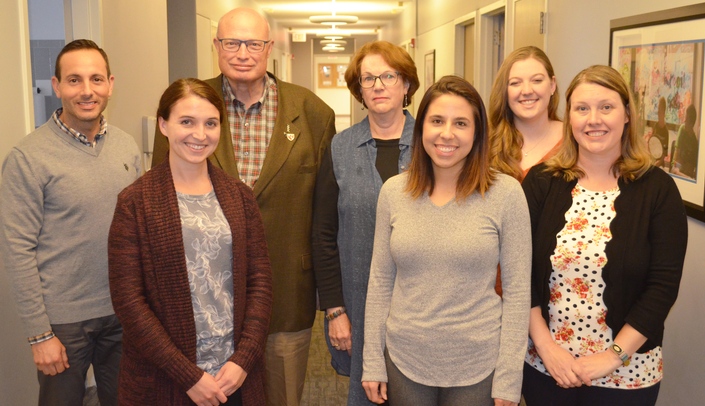The Munroe-Meyer Institute has completed taking part in a national study of using Whole Genome Sequencing, the most comprehensive genetic test on the market, to determine if a rapid result impacts medical management for sick infants in the newborn intensive care unit (NICU) or the pediatric intensive care unit (PICU). UNMC, in collaboration with Children’s Hospital & Medical Center in Omaha, was one of five sites taking part in the nationwide study.
“These tests are not typically accessible to this patient population, since whole genome sequencing is not currently covered by any health insurance plan,” said certified genetic counselor Kristen Fishler. “So we asked, ‘What is the impact of a rapid turnaround of these tests for critically ill infants?'”
The goal, Fishler said, is to discover the clinical impact of rapid results. Ultimately, the results may help make the case to insurance companies that they should begin to cover these rapid tests.
MMI’s genetic counselors, working in collaboration with neonatology at Children’s and Nebraska Medicine, worked to facilitate informed decision making for parents of patients in the NICU, and discussed results with families once the test was completed.
Patients who consented for the study received free testing and result disclosure with a genetic counselor, with the caveat that data was being collected for the study and could be shared in national databases.
“Once the result was returned, we worked together with our geneticists and neonatologists to interpret the results,” Fishler said. “Sometimes, the results provided evidence to consult a new care provider that we might not have otherwise. Other times, the results did not change the care of the patient, but was able to provide the family with answers regarding a diagnosis and the likelihood that it would happen again in a future pregnancy.”
By the end of the study, MMI genetic counselors had enrolled 84 patients and at least one of their parents, the second-highest number of patients among the five study sites. The study completed enrolling patients in April.
“This study has put UNMC and Children’s Omaha on the map in terms of our abilities to complete this type of research,” Fishler said. “We have shown that our patient population is interested in engaging in research, and that we have the personnel and the motivation to execute the intricate details of a study involving return of genomic sequencing results.”
The study was able to make diagnoses for many families who might otherwise not have been able to obtain this testing in the newborn period, and provided some negative results that were reassuring for some patient’s clinical situations. Future studies are planned to learn more about how our providers perceived this testing in context of their patient’s care, how families perceive and utilize the results of this testing over time, and what the optimal reanalysis plan may be in context of the child’s ongoing care.
